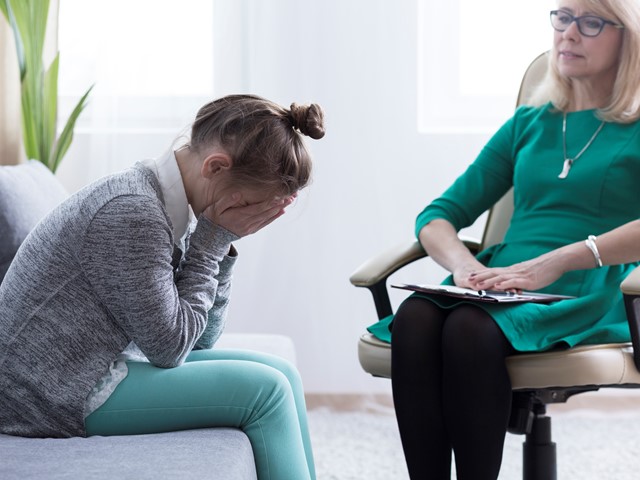Grief is a universal human experience that we all encounter at some point in our lives. It is a natural response to the loss of someone or something significant to us, such as the death of a loved one, the end of a relationship, or the loss of a job. The grieving process is complex and unique to each individual, encompassing a range of emotions, thoughts, and physical sensations. In this blog post, we will delve into the depths of grief, exploring its stages, coping mechanisms, and the healing journey toward finding solace and meaning in life after loss.
The Stages of Grief:
Grief is not a linear process but rather a series of stages that individuals may move through in their own time and in their own way. The renowned psychiatrist Elisabeth Kübler-Ross introduced the widely recognized model of the five stages of grief: denial, anger, bargaining, depression, and acceptance. It is important to note that these stages are not rigid or fixed, and individuals may experience them in a different order or even revisit certain stages. Understanding these stages can provide a framework for navigating the emotional rollercoaster of grief and help individuals recognize that their feelings are a natural part of the healing process.
Coping Mechanisms:
Coping with grief can be incredibly challenging, and it is important to find healthy ways to navigate through the pain. One common coping mechanism is seeking support from others. Sharing your thoughts and emotions with trusted friends, family members, or support groups can provide comfort and validation. Professional counseling or therapy can also be beneficial in providing guidance and helping individuals process their grief. Additionally, engaging in self-care activities such as exercise, journaling, practicing mindfulness, or pursuing creative outlets can offer moments of respite and allow for emotional expression.

The Healing Journey:
Healing from grief is a deeply personal and individual journey. It is not about forgetting or getting over the loss but rather finding a way to integrate the loss into one’s life and move forward with a renewed sense of purpose and meaning. The healing process may involve finding ways to honor and remember the person or thing that was lost, such as creating a memory box, writing letters, or participating in memorial events. It may also involve seeking meaning and growth from the experience, exploring one’s values and beliefs, and finding ways to give back to others who are also experiencing loss.
Supporting Others in Grief:
It is essential to acknowledge that grief affects not only the individual experiencing the loss but also those around them. If you have a friend or family member who is grieving, it is important to offer support and understanding. Be present, listen without judgment, and validate their feelings. Avoid offering platitudes or trying to fix their pain but instead offer your empathy and a compassionate ear. Encourage them to seek professional help if needed and remind them that healing takes time.
Supporting Others in Grief:
While grief is a deeply personal experience, offering support to others who are grieving is important. Remember that everyone grieves differently, so it is crucial to approach each person with empathy and respect. Avoid making assumptions or imposing your own beliefs about how they should grieve. Instead, be present and available to listen without judgment. Offer a shoulder to lean on or a safe space for them to express their emotions. Sometimes, simply sitting with someone in silence can be a powerful gesture of support according to Bible Keeper.
Seeking Professional Help:
Grief can sometimes become overwhelming and interfere with daily functioning. It is important to recognize when professional help may be needed. Therapists, counselors, or grief support groups can provide a safe and confidential space to navigate the complexities of grief. They can offer guidance, tools, and coping strategies to help individuals process their emotions and find a path toward healing. Seeking professional help is not a sign of weakness, but rather a proactive step towards self-care and healing.
Finding Meaning and Growth:
In the midst of grief, it can be challenging to see any meaning or purpose in the loss. However, many individuals find that their grief journey leads to personal growth and a deeper appreciation for life. They may find solace in advocating for causes related to their loss, volunteering to help others going through similar experiences, or creating art or writing as a way to express their emotions. Finding meaning in grief does not mean forgetting or moving on from the loss, but rather finding ways to honor the memory of what or who was lost and integrating that loss into one’s life story.
Embracing Life After Loss:
While grief never truly goes away, it is possible to find joy and meaning in life once again. The process of healing does not mean forgetting or betraying the memory of what or who was lost, but rather finding a new normal and learning to live with the grief in a way that allows for growth and happiness. Embracing life after loss may involve exploring new passions, deepening connections with loved ones, and finding moments of gratitude and joy amidst the pain. It is a testament to the resilience of the human spirit and the capacity to heal and find hope even in the face of loss.
The Importance of Self-Care:
Throughout the grief journey, self-care becomes crucial for emotional, mental, and physical well-being. Taking care of oneself does not diminish the love or significance of the loss but rather honors it by allowing individuals to heal and move forward. Self-care can include engaging in activities that bring joy, practicing self-compassion, setting boundaries, and prioritizing rest and relaxation. Remember to be patient and kind to yourself as you navigate the ups and downs of grief, and don’t hesitate to seek support when needed.
Grief is a deeply human experience that can be overwhelming and transformative. Understanding the stages of grief, finding healthy coping mechanisms, and embracing the healing journey is crucial in navigating the complex emotions that arise from loss. Remember that grief is not something to be rushed or suppressed, but rather a process that requires patience, self-compassion, and support. By acknowledging and honoring the grief we feel, we can begin to heal and find meaning in life once again.




